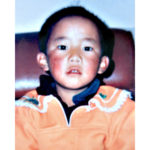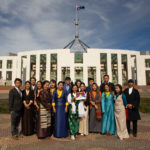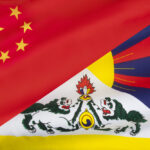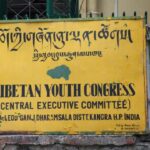“Tibetan Sovereignty Hasn’t Been Ceded”: An Interview With Greens Senator Janet Rice
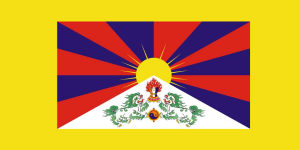
The 8th World Parliamentarians Conference on Tibet took place two weeks ago. Organised by the Tibetan government-in-exile, the meeting involved politicians discussing the need for greater global coordination around the issue of China’s seventy-year occupation of Tibet.
Following a ground invasion in 1950, the Chinese Communist Party (CCP) consolidated its rule over the previously free nation of Tibet when it forced local officials to sign the 1951 Seventeen Point Agreement. Whilst in 1959, a huge uprising in the Tibetan capital of Lhasa was crushed by Beijing.
Decades on and occupied Tibet is one of the most oppressed, surveilled and policed regions on Earth.
The Chinese government has long progressed a program of cultural genocide against the Tibetan people that continues to this day.
The recent conference further determined to revive the International Network of Parliamentarians on Tibet (INPaT), as part of a general resolve to heighten the campaign to progress Tibetan rights and self-determination via applying pressure to get Beijing to the negotiating table.
A program of erasure
At the Washington meeting, Central Tibetan Administration president Sikyong Penpa Tsering raised parallels between the invasion and occupation of First Nations peoples in the United States, Canada and Australia, with the plight of the Tibetans over the last seventy years of Chinese occupation.
Similar to the settler colonial societies that have been forged in those English-speaking countries, the CCP government has set in motion a series of policies aimed at erasing Tibetan culture, appropriating lands, and the attempted assimilation of the people.
In these three western nations and in occupied Tibet, the colonising powers have sought to destroy local belief systems, wipe out Indigenous languages, forcibly remove people from their lands to exploit resources, and denied locals self-determination.
A key policy rolled out within all these colonial societies has been the practice of Indigenous children being sent to boarding schools where they’re forced to speak the occupier’s language and assume their cultural tendences. Today, 78 percent of Tibetan children reside in such schools.
An occupying force
Australian Greens Senator Janet Rice has long supported the Tibetan cause. And at last month’s conference in Washington, she sought to place the colonial occupation of Tibet in the broader context of the global struggle for First Nations rights.
The senator set out that in understanding China’s rule in Tibet as one of an oppressive occupying force, similar to colonial rule in nations such as this country, provides a clearer light on how to progress the cause of the Tibetan people in the international arena.
Sydney Criminal Lawyers spoke to Greens Senator Janet Rice about how life is for the six million Tibetans living under CCP occupation, the importance of treating Tibet as an occupied nation, and the need for the international community to apply pressure in getting Beijing to negotiate on Tibet.

For a number of years now, Freedom House has rated Tibet the least free country in the world in line with Syria. The Chinese Communist Party officially began its occupation of the nation in May 1951.
Senator Rice, two weeks ago, you were in Washington DC to attend the 8th World Parliamentarians Conference on Tibet. What was the aim of the meeting?
The primary aim was to bring people together who are working on Tibetan rights in parliaments across the world and help us to work strategically together.
In doing so, it was to encourage us to keep the occupation of Tibet and the oppression of Tibetan people on the global public agenda and to support us in working together in doing that.
And you’ve been working around the Tibetan issue for a number of years now?
Yes. On and off for quite a long time, particularly with my focus on working on human rights issues and standing up for rights around the world and against the appalling oppression of human rights by the Chinese Communist Party.
That’s Tibetans, along with the Uyghurs and the Hong Kong-Chinese democracy activists, who are all examples of people being oppressive by a totalitarian government.
Currently, six million Tibetans are living in their homeland under Chinese occupation. How do you understand their lives to be after 70 years of CCP rule?
We undertook a lot of discussion about what the current situation is. We were given a huge amount of material about it.
Essentially, the Tibetan people are severely persecuted and oppressed. There is no freedom of movement, of expression, of religion or association.
The Chinese government has clearly stated in their policies and in their notices that they want to eradicate the Tibetan sense of identification with their own culture, history, spiritual tradition and language.
In terms of trying to get assimilation into Chinese culture, they’ve got schools that are forcing kids to learn in Chinese.
Chinese is now being taught in preschool, and the government says the reason they’re doing that is to build a sense of community with the Chinese nation.
If schools aren’t complying or teachers are continuing to teach Tibetan culture and religion, there are many examples where they’re being arrested.
There was the recent example of a teacher who was teaching Tibetan culture being arrested and tortured for inciting separatism.
We’ve got over three-quarters of Tibetan children who are now being taken away to be educated in boarding schools, where they’re taught in Chinese and separated from their families and culture.
We’ve got a situation under Chinese president Xi Jinping, where the current strategy states that they want to see the Sinicisation of Tibetan Buddhism and an adaptation of Buddhism to the Chinese socialist system, where patriotism is prioritised over religion.
So, they want to completely destroy Tibetan Buddhism. You’ve got the People’s Republic of China government having passed laws that give them sole authority in the selection process for the next Dalai Lama.
That’s exactly what they did with the Panchen Lama, the second in line spiritually, who was kidnapped as a small boy in 1995 and hasn’t been seen since.
The Chinese government has instated their own Panchen Lama, who is obviously compliant with Beijing.
China is demolishing schools, monasteries, prayer wheels and statutes. They’re detaining people who have got pictures of the Dalai Lama.
Essentially, they’re applying huge pressure to make sure people don’t speak out. And anybody that does is being punished.
After decades of occupation, which have involved the attempted erasure of Tibetan culture and a mass migration program that’s seen Han Chinese moving into Tibetan areas, so today, Tibetan’s are in the minority, Beijing continues its crackdown, rolling out further repressive policies.
Why does the CCP consider it necessary to increase its grip further on the nation of Tibet and its people?
Basically, they don’t want any disloyalty towards the Communist Party rule, so that’s the way that they operate across China and occupied Tibet.
Maintaining their power and control is dependent upon them suppressing dissent. So, they can’t allow people to have loyalty to the Dalai Lama, Tibetan Buddhism and culture, because it’s at odds with the loyalty to the Chinese Communist Party.
So, there’s that control. And then, fundamentally, they want access to the resources of Tibet.
You’ve got the forced removal of nomads from the Tibetan Plateau. There are massive mining operations going on there and there are mega-dams being built.
There are a lot of environmentally destructive activities going on, involving land and water resources that the Chinese government wants ongoing access to.
Control and suppression of autonomy and self-determination is what is happening to maintain control. And the other part of maintaining that control is, of course, not letting anybody in.
So, outsiders are not allowed freely into Tibet, so the world can’t see what’s going on.
During the conference, a parallel was drawn between the treatment of Tibetan people under Chinese rule to that of First Nations peoples in the US, Canada and Australia.
Your contribution to the meeting was to place the Tibetan issue into the context of this broader global First Nations struggle.
Can you speak on this point?
One of the really strong messages from the conference was for people to acknowledge that Tibetan sovereignty hasn’t been ceded, and to treat Tibet as an occupied country and not part of China.
Fundamental to that is to see China as a colonial occupier in Tibet, which is what they are. Tibetan people are there with a culture separate to that of China, and they’re being occupied.
They’re undergoing cultural genocide. And we can see this in the context of colonialism around the world over the centuries, particularly in our Australian context.
We now acknowledge, at least some of us do, the damage that has been caused to First Nations peoples and all the trauma and horrors of invasion and war.
We acknowledge that we need to do something about it, and that First Nations cultures need to be supported and allowed to flourish.
China, at the moment, is light years away from that and are taking an approach of suppressing the cultures of the Tibetan people that they’re occupying.
Being clear about China being an actual colonial power occupying Tibet and seeing the Tibetans as an occupied people is fundamental to understanding what action needs to be taken on this issue.
There has been a mounting push amongst certain nations, especially those involved in the AUKUS pact, to war upon China.
Some prominent members of the left commentariat have been suggesting that to raise the plight of the Uyghur peoples and, indeed, the Tibetans is to somehow stoke the flames of war.
How do you consider moves to downplay the human rights abuses carried out by the CCP as a means to counter increasing war rhetoric?
Saying that speaking out about human rights is inflating war is wrong. We have a very serious global human rights issue.
If we’re concerned about human rights, it’s very clear that there’s massive suppression of human rights going on, but it doesn’t mean that then the solution is going to war.
In fact, war is never the solution. And the Tibetan Buddhists, with their staunch commitment to nonviolence, are a good example of that.
The last thing the Tibetans want is war. Which is why the Dalai Lama, with the middle way approach, is not pushing for a separate nation but is looking for some serious autonomy.
So, we need the world to be taking coordinated action applying pressure to China through diplomatic means, through multilateral action and through trade.
This is to let Beijing know that it cannot be a serious global power with the respect of other nations, while they’re oppressing the Tibetan people, the Uyghurs and the people of Hong Kong as well.
Inflaming war is actually the last thing that’s going to get China to the negotiating table.
The conference was asking us to take to our parliaments the idea of coordinated action with likeminded governments to achieve a resolution to the Sino-Tibetan conflict, dialogue and negotiation between the parties without preconditions.
So, it’s saying we need to get China to sit down at the negotiating table, and clearly, they’re not willing to do that at the moment. The world needs to be applying pressure through all sorts of multilateral, diplomatic and trade means to get China to the table.
In speaking out about human rights in China, and about human rights overall, we can’t afford to pick and choose, so it’s about the world getting serious about the protection of human rights in all countries. It’s not just China we are picking on.
It’s about getting serious about the protection of human rights here in Australia, and not just seeing it as a battle between two global powers.
So, in speaking out about human rights in China, you’re not suggesting that you’re pro-US power, because it doesn’t automatically result from that.
It’s about saying that we need to be speaking up for the self-determination and the human rights of all people across the world.
And lastly, Senator Rice, as discussed, the Chinese government is increasing its repressions in Tibet. As you’ve mentioned, a report released earlier this year suggests around 78 percent of Tibetan students are living in boarding schools where they’re forced to engage in Mandarin.
The CTA is fighting for meaningful autonomy under China, whilst the Tibetan Youth Congress and other organisations continue to campaign for full independence.
What do you consider the way forward for the people of Tibet?
Given the Tibetan government-in-exile, which has been elected by Tibetans around the world, has taken the position of meaningful autonomy under China that’s what I am listening to, especially as its more achievable than full independence.
But essentially, it’s about getting China to come to the negotiating table and working out what the solution is and trying to achieve that resolution, while, at the moment, China is light years away from even acknowledging that there is an issue they need to come to the table about.


